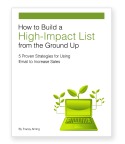Why Information Pages are a Cleantech Website’s Best Friend
The truth is, for the past 15 years or so, the Internet has quietly been transforming users into not just buyers but—perhaps more importantly—researchers, too.
And with so much information right there at the edge of everyone’s fingertips, more and more people have become information junkies.
They want to know how things work, how to do something they’ve never tried before, how one thing compares to another, etc., etc.
Whether or not they’re actively shopping for something, they want information that will educate them, make them smarter.
This is especially true when talking about environmental and green technologies—technologies which are, let’s face it, still a bit of a mystery to most people.
Yes, before doing anything else, your average information hungry Internet user wants to know more about these newfangled clean technologies—what they are and how they work.
And if your website doesn’t give them what they want, they’ll just go elsewhere—and that could mean to your competition.
So the more information you can provide on your website, the more visitors you’ll attract and the more you’ll position your company as a trusted resource.
A resource visitors will remember and come back to when they decide the time is right for them to buy.
But don’t make the mistake a lot of marketers do and think a cleverly disguised sales page will work just as well as a true information page.
It won’t.
If your information pages even hint at an ulterior motive, you’ll lose trust . . . and visitors.
No, the key here is to provide genuinely helpful information. Information written from an honest, unbiased perspective.
But that’s not to say your information pages can’t be linked to more marketing oriented pages elsewhere on your site.
On the contrary, every page on a site that does not link to another is a dead end. And a dead end is something you want to avoid.
So at the end of each information page, ask yourself where a visitor might want to go from there.
Would they be interested in product comparisons, online video presentations, or other articles?
If you’re stuck for ideas, try studying your site’s analytics—a great way to get insight into visitor behavior.
Or why not ask for visitor input? This kind of uncensored feedback can provide a whole host of insights into how to make your information pages more visitor centric.
So don’t discount the power of the information page. Sales pages may sell, but information pages give people what they want.
And the more you give people what they want, the more they’ll give you what you want—and keep coming back for more.
Return to articles




